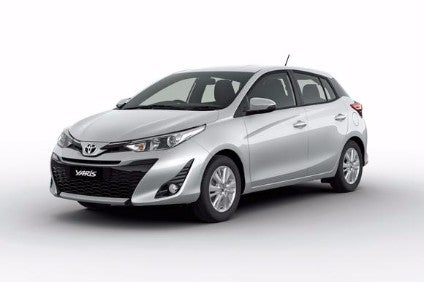
Toyota Motor has announced plans to spend BRL1bn (US$319m) to upgrade its Sorocaba plant in Brazil to build the Yaris subcompact passenger car from next year but the chosen model is a new ’emerging markets’ variant recently launched in Thailand for the ASEAN region and not the recently updated Yaris/Vitz version built in other countries, including Japan and France, and sold worldwide.
The automaker plans to produce the small hatchback car alongside its Etios compact car from mid-2018. The company also produces the Corolla model at a separate plant in Sao Paulo.

Discover B2B Marketing That Performs
Combine business intelligence and editorial excellence to reach engaged professionals across 36 leading media platforms.
The Nikkei Asian Review said Sorocaba capacity would remain at just over 100,000 units a year. But the share taken up by the Etios subcompact would be shrunk to accommodate the Yaris.
The Etios, a mass market model, and the further upmarket Corolla account for most of Toyota’s sales in Brazil. The Yaris will occupy the middle price range, the paper added.
This is part of Toyota’s strategy to bounce back in emerging markets, the Nikkei added. The automaker previously tried building market share with the Etios and other strategic models but had trouble striking the right balance between high quality and low prices. It then turned to subsidiary Daihatsu Motor, which specialises in low cost cars. In January, the pair formed an internal company dedicated to selling small cars in emerging markets.
In August, Toyota started selling the Yaris Ativ (pictured) in Thailand which starts at the equivalent of around US$13,000. This price range makes the model the most affordable sedan offered by Toyota in the ASEAN region.
According to just-auto‘s PLDB database, the Thai Yaris ATV is a small sedan assembled by TMT (Toyota Motor Thailand) from KD kits shipped in from Japan. The car is based on the Yaris/Vitz but unlike that model, which has a 1.5 litre engine in the Thai market, the Yaris Ativ has a 1.2.
The car complies with the Thai government’s Eco Car 1 programme, with rival models from Honda, Nissan, Mitsubishi and Suzuki already available before the Yaris. Including hatchbacks, cars which qualify for Eco Car 1 have risen from a 5% share of the Thai market to 15% and TMT believes they could yet reach 25%. Such models’ petrol engines must have a maximum capacity of 1.3 litres or 1.5 litres for diesels. Average economy must be at least 54.7mpg (4.3l/100 km) and CO2 emissions should be below 100g/km.
The Yaris Ativ went on sale last month with TMT estimating monthly sales would be 4,700 cars with a further 3,000 exports.
Global auto production is projected to reach 112m units in 2023, up 21% from 2016, the Nikkei added, citing PwC Japan Group. Emerging market demand is expected to soar 37% over that period, compared with 3% growth in developed markets, the Japanese arm of the global auditing company said.
Earlier this year, Toyota announced plans to expand capacity at its engine plant in Porto Feliz, Brazil, from 108,000 units per year to 174,000 units by 2019.
The company sold 123,400 vehicles in Brazil in the first eight months of this year to claim an 8.7% share of the local vehicle market, according to the local automotive association.
Toyota been encouraged by signs of recovery in the Brazilian vehicle market after several years of sharp decline. The country’s GDP expanded by 0.3% year-on-year in the second quarter – the first growth since the first quarter of 2014.






